As a kid, Susana Rodríguez wanted to do whatever her sister, Patricia, two years older, could do. Susana was born with a severe visual impairment due to albinism, while Patricia could see perfectly. But on playgrounds in the girls’ hometown of Vigo, northern Spain, when Patricia reached the highest, most complicated point of the jungle gym, it beckoned to Susana too, she says. “I would always try until I could do it too, without any help. I think that’s what created in me this eagerness to fight.”
That determination has powered the 33-year-old through twin careers in triathlons—long-distance races that combine swimming, cycling and running—and medicine, a field with major barriers to entry for visually impaired people. Even her resolve, though, might have been tested by the pandemic. When COVID-19 hit Spain early and hard, hospitals were driven to a state of collapse, and lockdowns made it impossible to train outside. The 2020 Olympic and Paralympic Games, the latter of which Rodríguez had been training for over the previous four years, were postponed and plunged into uncertainty. After a year’s delay, Rodríguez is finally preparing to head to Tokyo, speaking to TIME a few weeks before leaving for training camp with the rest of the Spanish Paralympic team. She has stayed at the top of her game, winning two gold medals in June, adding to a long list of 27 wins in international competition, including three world championships.
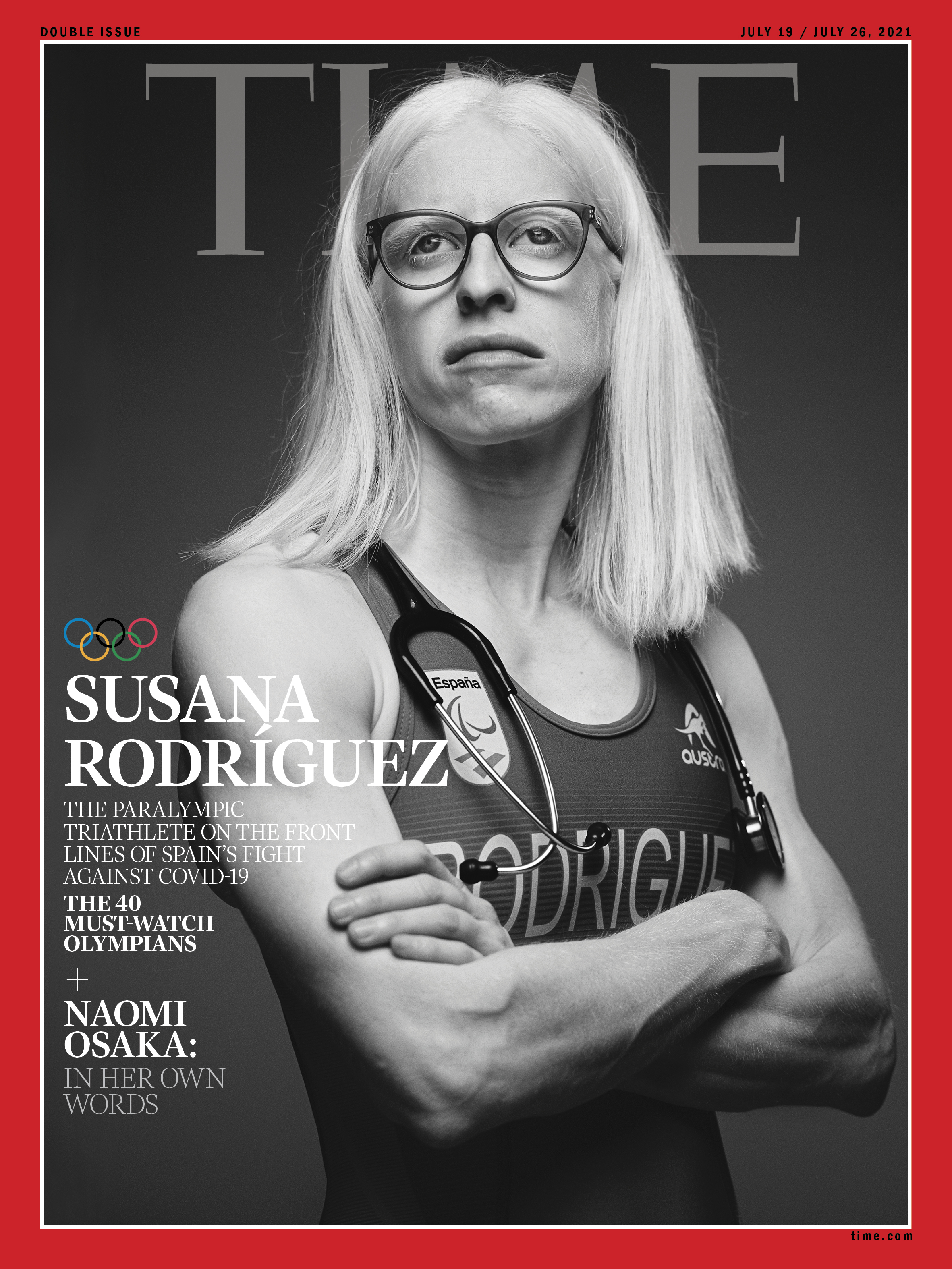
Get a print of TIME’s Tokyo Olympics cover featuring Susana Rodríguez
Like everyone else, Rodríguez spent the first months of the pandemic in a state of mounting fear and anxiety. Every morning began with a meeting on how many COVID-19 patients the hospital had and how many beds and ventilators were left. She worked phone lines to help people figure out if they needed a test for the virus, and rehabilitated COVID-19 patients who were weakened by the virus and long ICU stays. Meanwhile, she kept training every afternoon after her hospital shift. “I think sports helped me to be able to recover and go back in and face the next day at work,” she says.
Barred from even walking or running outside by Spain’s strict lockdown, she stayed in the apartment she shared with two other health workers. She spent three hours each day on a rowing machine, an exercise bike and a treadmill, hastily delivered by Spain’s Paralympic Committee. That discipline started in childhood. Rodríguez decided at the age of 10 that she wanted to become an athlete. She began spending a fixed two hours on schoolwork every day to make sure she didn’t fall behind on her education while training. “Every day meant every day,” she says. “Consistency is the key.” Her strict schedules proved useful when, at 18, she decided to work in health care; again when she was 22 and started training for triathlons; and, of course, in preparing for Tokyo during a pandemic.
As in all her triathlon competitions, she will work with a guide who tells her what’s happening on the circuit, cycling on a tandem bike and running and swimming, joined to them by a cord. Pending confirmation from the national committee in mid-July, she is also set to compete in the 1,500-m race, which would make her the first Spaniard to compete in two separate event categories at the same Games.
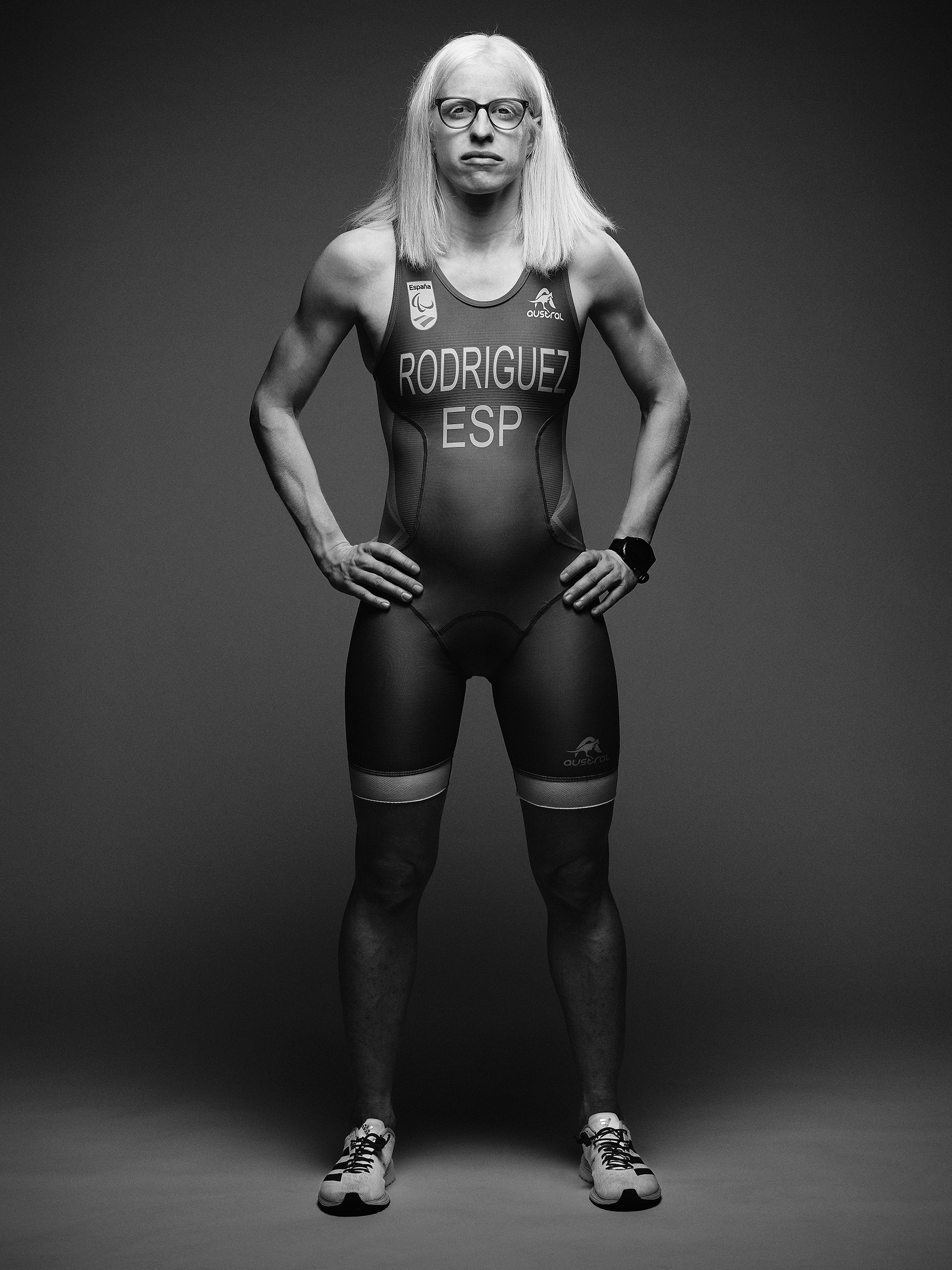
The event will be very different from her first Paralympics in 2016: there will be no foreign spectators, no spending time with other teams, and a strict regimen of PCR tests. Because the entire team needs to quarantine in Spain for two weeks before the Games, she will arrive in Tokyo less than 10 days before her events begin, leaving little time to acclimate to the city’s high humidity. Nevertheless, Rodríguez says the past year has reaffirmed her faith in both sports and medicine: “What we’ve been through has made me realize even more: health is the most important thing, both for the individual and for the collective. If you don’t have health, everything else is in the air.” —Ciara Nugent
Jo Brigden-Jones
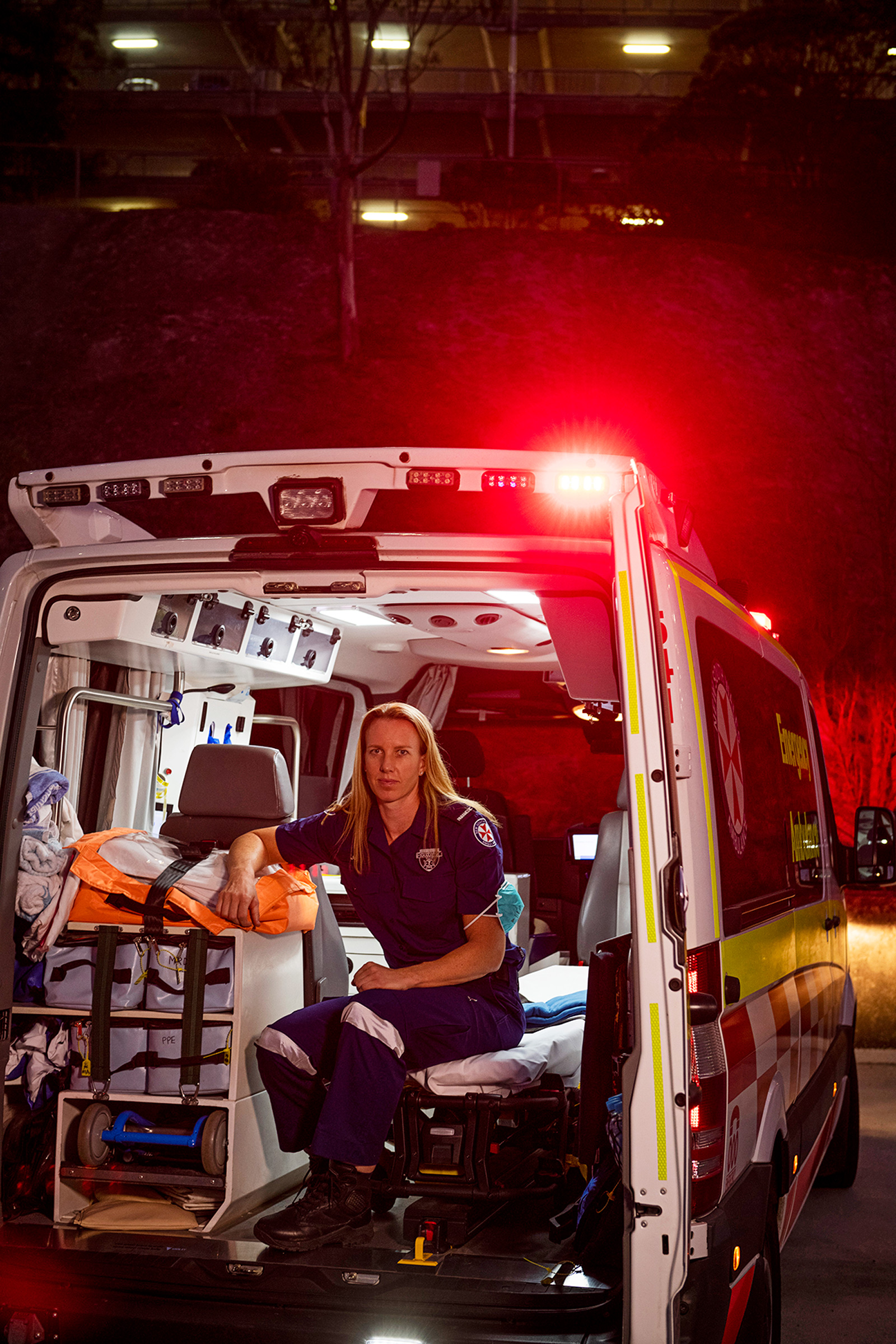
Being both a world-class kayaker and a paramedic can be hectic. “Sometimes I would do three training sessions and then go to do my night shift,” says Jo Brigden-Jones, who will represent Australia in this year’s Olympics. But the 33-year-old, who has worked for New South Wales Ambulance since 2016, says her career takes some of the pressure off when she’s at the starting line getting ready to paddle. “I might have saved someone’s life in my last shift,” she says. Although Australia has handled the pandemic well, with just 120 cases per 100,000 residents to date, the Olympian has come face-to-face with the virus. She says she helped transport one of the first confirmed patients from their home to a hospital. “Then it was still quite scary and confronting because we didn’t know much about the virus, and everything was evolving every day,” she says. Brigden-Jones, who will fly to Japan on July 24, says her health care experience has helped her accept the strict social-distancing measures and mask mandates that athletes will face in Japan. It’s worth it, she says:
“I recognize how special it is to be able to still compete at the Olympics in a pandemic.” —Amy Gunia
Elena Galiabovitch
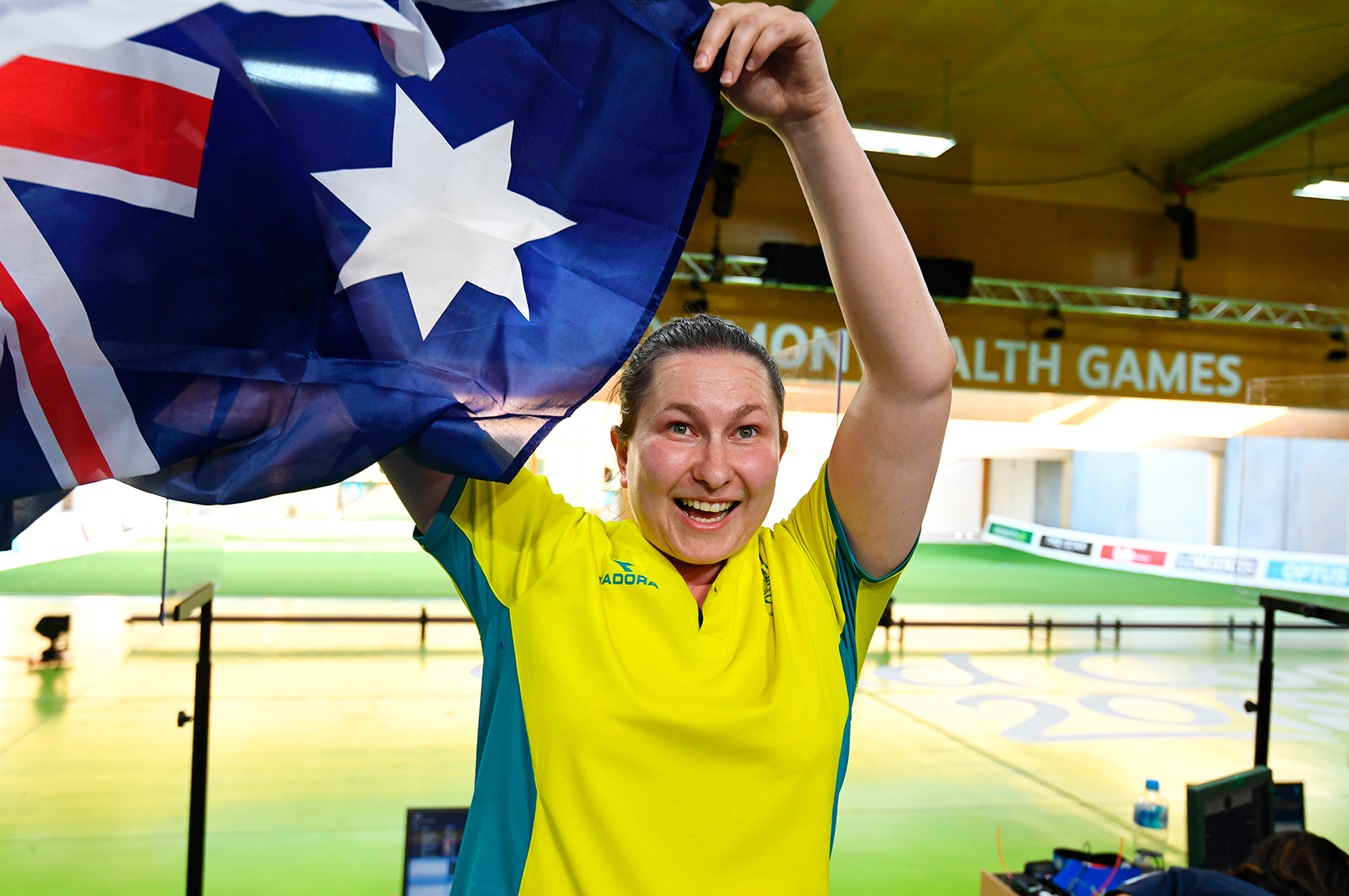
This spring, when other athletes were preparing to fly to Tokyo, Australian shooter Elena Galiabovitch was standing in a drive-through clinic, waiting to swab expectant noses for COVID-19. Galiabovitch, a doctor in training to become a urological surgeon, worked shifts in Melbourne’s COVID-19 wards earlier in the pandemic and decided to pitch in at testing sites as well. The 31-year-old picked up shooting seriously in 2014—originally to spend more time with her father-coach Vladimir—and went on to qualify for the 2016 Olympics in Rio. After working on the front lines of the pandemic, Galiabovitch says she’s just happy for the chance to gather with international athletes: “I hope it brings hope to the world.” —Jamie Ducharme
Rachael Lynch
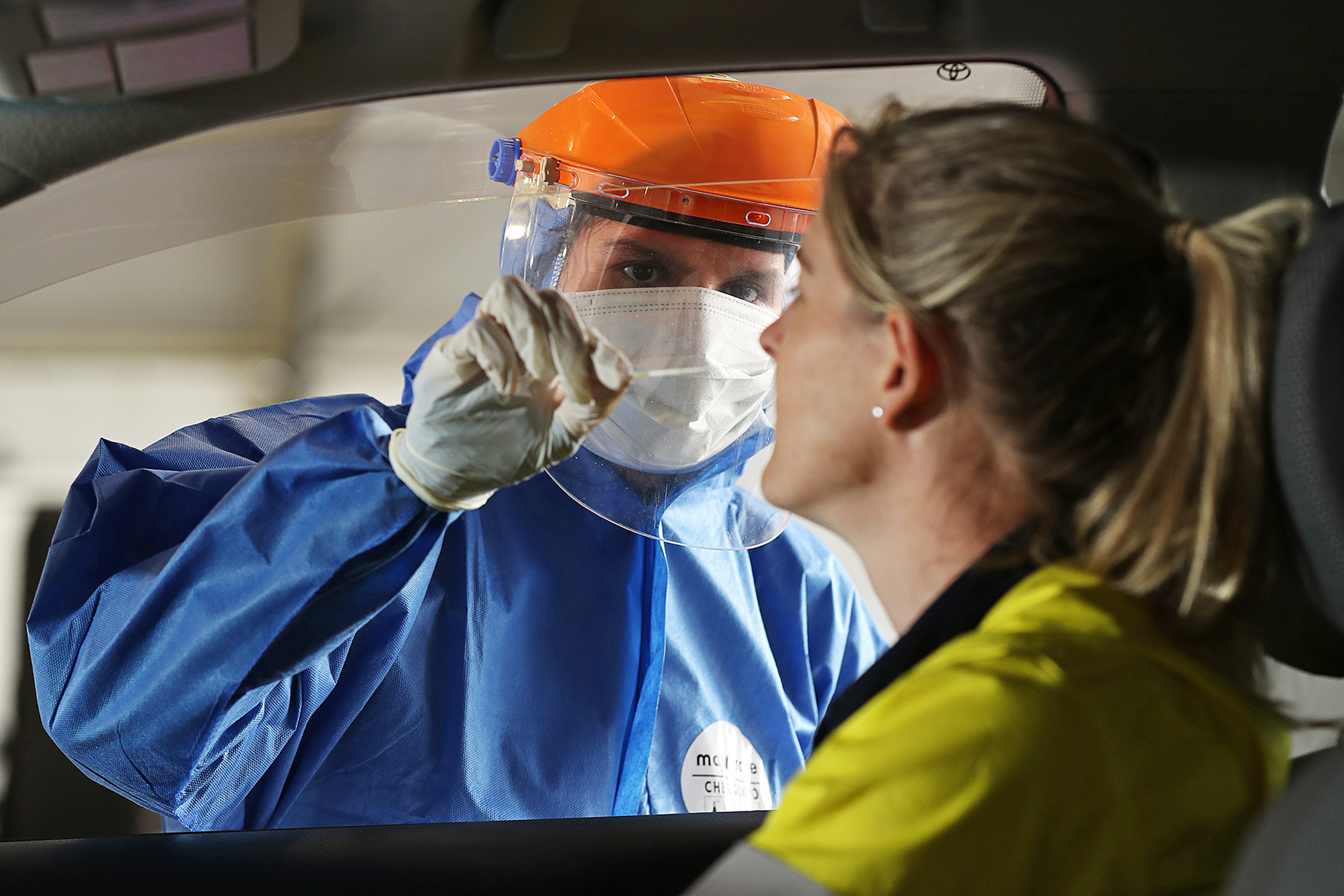
Western Australia, where field-hockey goalkeeper Rachael Lynch is based, has handled COVID-19 better than much of the rest of the world. Still, it’s been a busy year for the athlete, who is also a registered nurse. For the past 12 months, she’s been working for a mining company, testing staff before they traveled to mining sites to ensure the company could safely continue its operations during the pandemic. The 35-year-old says her colleagues identified several COVID-19 cases in time to reduce the risk of outbreaks. Although it’s been hard work, she says it makes her a stronger competitor in the sports arena. “I honestly feel like it makes me a better athlete, having that time away and doing things to help other people that aren’t about me,” she says. “All the disappointments that come from elite-level sport, they’re not as harsh and not as bad if you’ve got other things in your life, and I think that’s important.” Lynch, who competed at the Rio Games in 2016, knows that Tokyo won’t be like any past Olympics, but she hopes that the world still gets to enjoy it, even if they can only tune in via television. “Hopefully we can still make it a really exciting spectacle for everyone because we’re very grateful that we get the opportunity,” says Lynch, “and there’s lots of people that are putting in a lot of hours to make this happen.” —A.G.
Paula Pareto
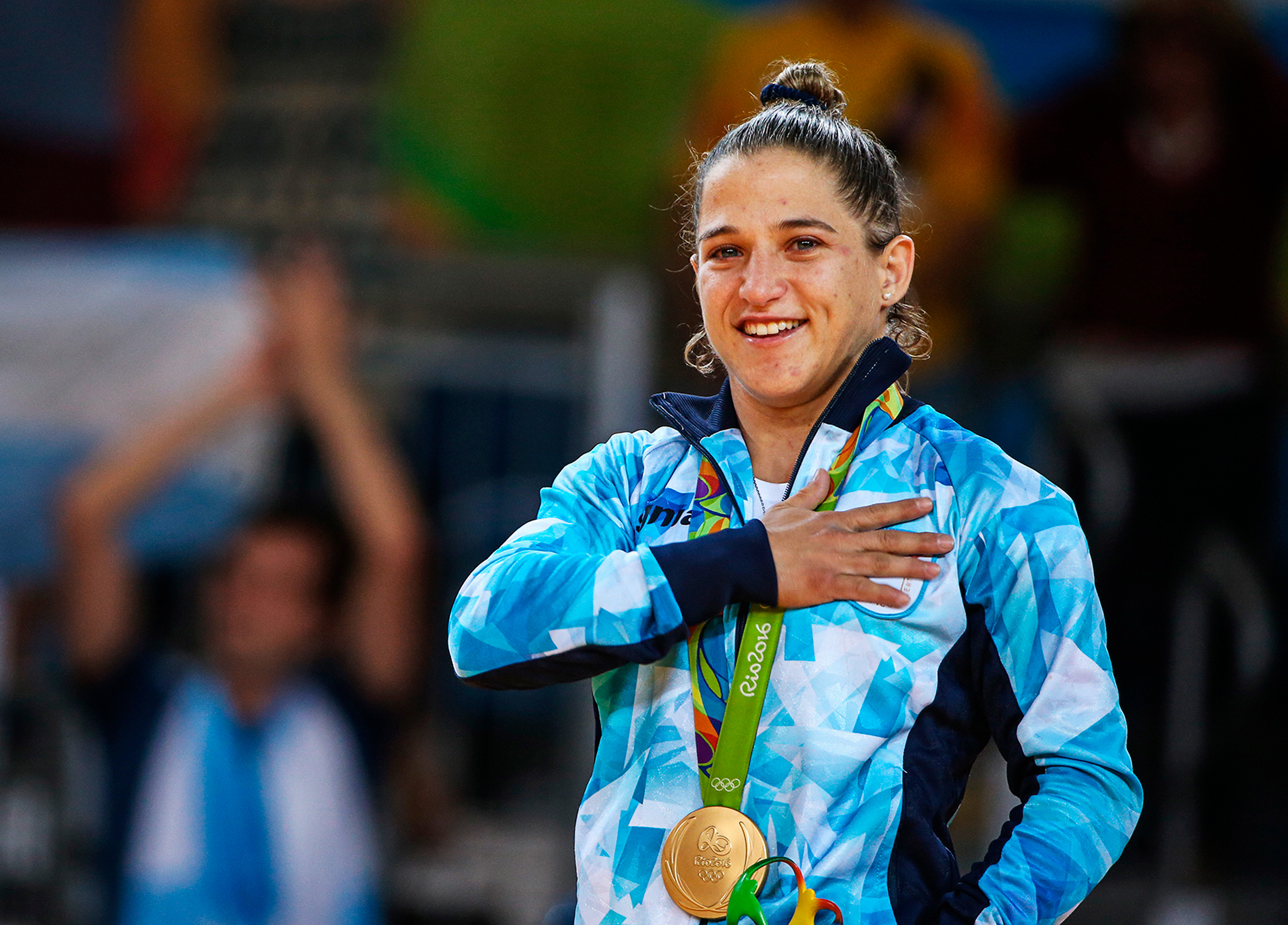
Paula Pareto is known as La Peque, or the Small One—and not without some justification. What else are they going to call you when you’re barely 4 ft. 10 in. tall and tip the scales at under 105 lb.? But based on her accomplishments, Pareto is anything but peque. Entering her fourth Olympics, the Argentine judoka is already in possession of a silver medal won at the 2008 Beijing Games and a gold won at Rio de Janeiro in 2016. But it’s her efforts off the mat that truly distinguish her.
A physician working as a trauma specialist in a hospital in San Isidro, she spent 2020 and much of 2021 on the front lines of the COVID-19 battle, both caring for her own patients—some of whom were suffering from the disease in addition to the injuries that landed them on Pareto’s ward—and assisting the rest of the medical staff that was working full time against the pandemic. Throughout the past months, Pareto continued to work her shifts at her hospital, with the attendant risk of contracting COVID-19 herself, while also training for the Olympics. But that challenging path is one she apparently enjoys traveling. As Pareto wrote on her Facebook page, “The degree of courage you live with determines the degree of satisfaction you receive.” —Jeffrey Kluger
Gabby Thomas
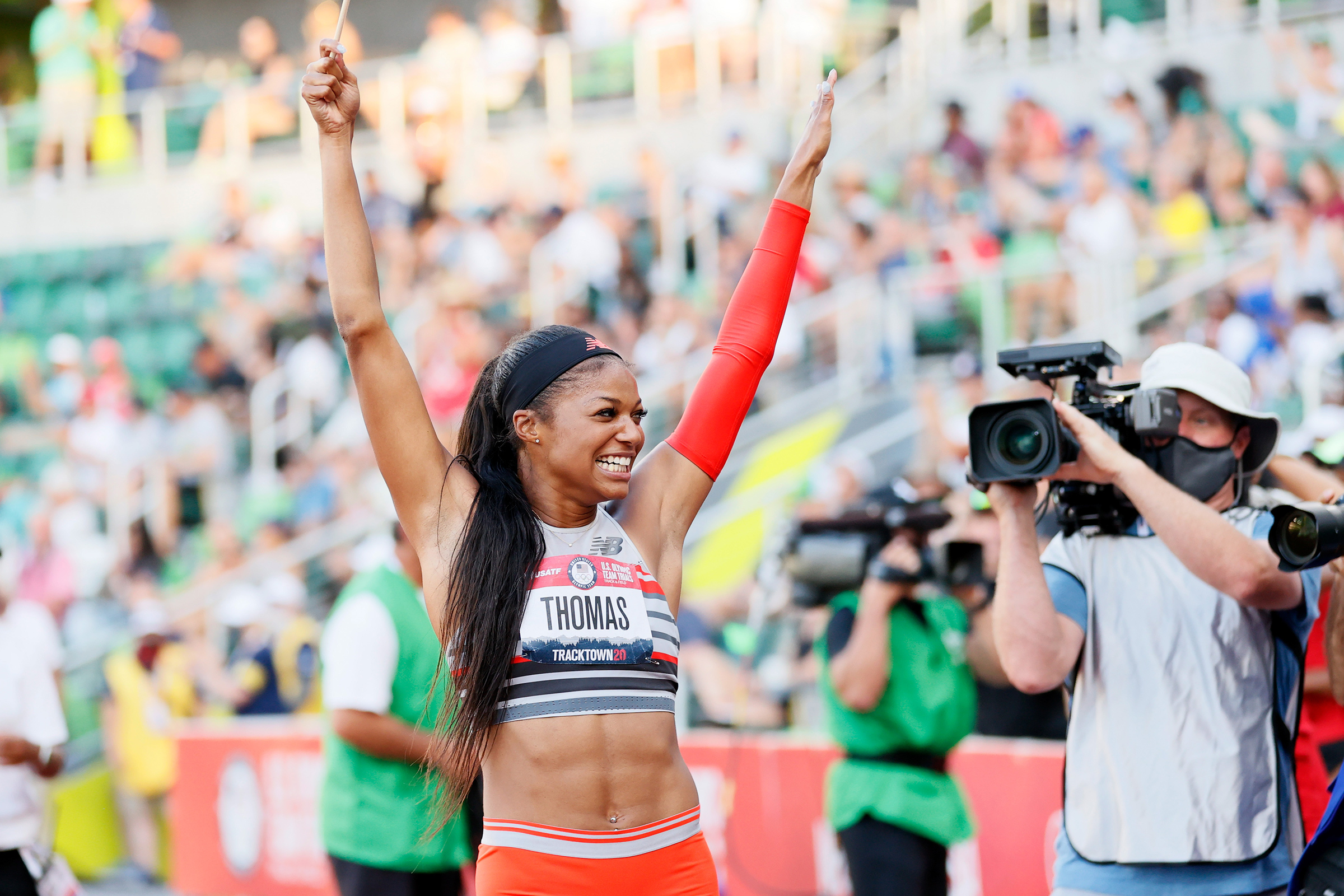
There’s a reason the press has crowned Gabby Thomas the fastest epidemiologist in the world. The 24-year-old American came in first in the 200-m sprint at June’s Olympic trials with a time of 21.61 sec., only narrowly missing track-and-field legend Florence Griffith Joyner’s 1988 world record of 21.34 sec. Thomas is also at home in a very different environment: the classroom. She studied global health and health policy as an undergrad, and is now working toward a master’s degree in epidemiology. She hopes to help reduce disparities in health care access and outcomes. Health is also personal for Thomas, who qualified for the Tokyo Games about a month after doctors found what turned out to be a benign liver tumor. Thomas told Runner’s World, “I remember telling God, ‘If I am healthy, I am going to go out and win trials. If this is not cancer, I will make this team,’ and that’s exactly what I did.” —J.D.
Read more about the Tokyo Olympics:
More Must-Reads From TIME
- The 100 Most Influential People of 2024
- The Revolution of Yulia Navalnaya
- 6 Compliments That Land Every Time
- Stop Looking for Your Forever Home
- If You're Dating Right Now , You're Brave: Column
- The AI That Could Heal a Divided Internet
- Fallout Is a Brilliant Model for the Future of Video Game Adaptations
- Want Weekly Recs on What to Watch, Read, and More? Sign Up for Worth Your Time
Write to Ciara Nugent at ciara.nugent@time.com, Jamie Ducharme at jamie.ducharme@time.com, Amy Gunia at amy.gunia@time.com and Jeffrey Kluger at jeffrey.kluger@time.com